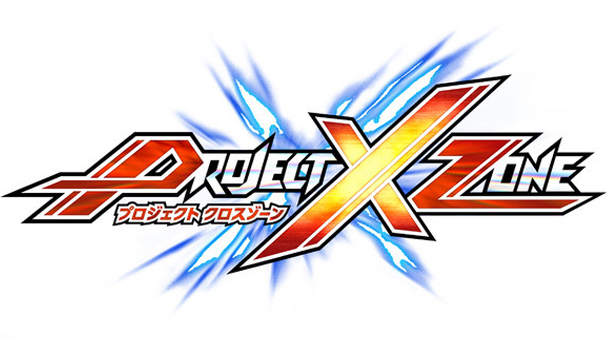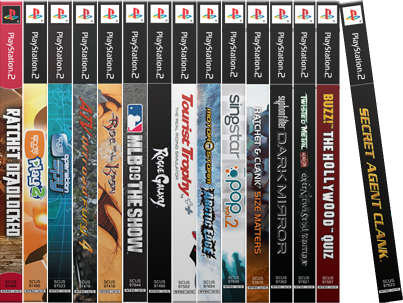Today, Jen and I wanted to take a look at a particularly divisive issue in games journalism, reviews. We’ve gone so far as adapting different review layouts for ourselves on this site, so it’s certainly something we strongly disagree about. So let’s lay out our positions.
Are scores a hindrance in reviews?
Jen:
Scores actively detract from reviews whenever they’re present. For many publishers, developers and gamers, the score has morphed into the only part that matters, with the preceding text treated as a justification for the score’s existence rather than the meat of the article. They cater to the whims of the instant gratification mindset, comprised of people who don’t care about what makes a game good or bad, and would rather just take a score and measure it against the scores of other games before it. Game discussion gets boiled down to “x got a better score than y on this site,” leading to much teeth gnashing and name calling over a simple set of numbers.
Scores make sense when you’re judging a simple consumer product like a remote or smartphone. Games, much like movies or music, are incredibly subjective creations that vary wildly from one title to the next. Slapping a score at the bottom encourages more trite observations expected from a review for a car (How pretty is the paint? How far can I drive it?) and fewer statements that fit the game (How did it make me feel when I climbed to the top of this mountain and looked down at a sprawling fantasy world eager for adventure?).
Six:
You’d think so, wouldn’t you? All these people on the internet who bitch about low review scores for games they love, I’m sure none of us appreciate them very much. The question you have to ask yourself, though, is “what purpose does the number serve?” It serves as a quick summary of the overall feelings of a review. People who are invested, people who care, people who want to get an intelligent view, they will read the entire review. Do you think the people who just look at a score are going to say “oh, there’s no score here, I guess I will read this entire review”? No. That’s not going to happen. At best, they will just close the article. At worst, they will read some random part of it completely out of context (say, the part where you criticize one of its flaws) and use that to represent the entire review. And yeah, that’s worse than not reading the article at all.
Taking away review scores serves the writer, not the reader. If the reader wants some information– a quick summary of your thoughts on the game compared to the field– how self-absorbed do you have to be to say “No. You have to read nine paragraphs and then you can know if I liked it or not.” What’s more, a score can convey things that are not in a review. A review with a lot of negative points, but a positive score, can convey to a reader that the pros may not outnumber the cons, but they do outweigh them. And they can, yes, be compared against other outlets, because no reviewer is absolutely right about every game, and being able to assemble a consensus about a title is valuable to consumer and creator alike.
Does Metacritic serve a useful role in the industry?
Jen:
No site better demonstrates the problem with reviews than Metacritic. Save for a small blurb, this soulless aggregation machine slurps up the scores left by authors from various outlets and stitches them together to form one bloated corpse of a measurement bearing resemblance to Frankenstein’s monster. This disgusting amalgamation of meaningless binaries serves as an unquestioned mallet for the less savory corners of society. If the review you wrote contributed to lowering the overall Metacritic score for a fan favorite, be prepared for inboxes and forum threads filled with hatred and death threats.
Worse yet, Metacritic’s final score can be used by publishers to prevent developers from earning a bonus, or even a proper salary for their hard work. Despite their insistences, it unquestionably burdens any reviewer unfortunate enough to hit the popularity quota for Metacritic inclusion. Reviewers shouldn’t ask themselves whether giving Fallout New Vegas the score that best matches their opinions will prevent Obsidian Entertainment from hitting some arbitrary goal set by suits, but it’s a hard temptation to avoid. Metacritic is yet another cog in the machine that attempts to turn game development into less of a passionate art form and more of a “product” that checks the right boxes. Is that where you want the industry to go?
Six:
Metacritic has its problems, but they aren’t Metacritic’s problems, if you follow. They’re problems inherent with reviews on the internet, focused and heightened because of the site’s prominence and visibility. Metacritic isn’t responsible for users that harass reviewers any more than fertilizer companies are responsible for the creation of crystal meth. And as far as its actual purpose? It takes review scores and posts them in a central location, and then combines that with a little calculator math to try to get consumers an idea of how good a product is. Oh no it’s the Boogieman.
I have used Metacritic to determine if I should buy a product. Jen, you’ve used Metacritic to advise me to buy a product. It is a tool just like a hammer or a screwdriver, and condemning it as a monstrosity for that is cartoonish and absurd. Criminals drive cars, but we aren’t calling cars abominations for their part in crime. It’s a useful resource. It can be misused. Big surprise.
And let’s not pretend that publishers cutting developer funding for low Metacritic scores is Metacritic’s fault. No one is forcing publishers to use Metacritic this way– Metacritic itself has gone on record as saying they think it’s inappropriate. This is all publishers, and guess what? It’s an excuse. If Metacritic did not exist, they would find some other reason to not pay bonuses to developers. It’s part of a culture of treating the product creators like shit while the suits get to bathe in the rewards. You don’t get to lay that at Metacritic’s feet, or the feet of reviewers.
C: Are updates to reviews acceptable?
Jen:
If you feel strongly about updating your review to reflect changes to the game, it’s perfectly acceptable to do so. I only ask that you keep your original review intact, adding the additional content in a way that doesn’t completely override any preexisting text. Reviews most often embody the game as it existed when others bought it off the shelf. That perspective should be preserved; even if its problems were fixed through a series of patches and hotfixes, it’s important to remember that the original experience wasn’t all puppies and rainbows. Pretending otherwise feeds a culture of “Release incomplete, fix later” that SimCity and Aliens: Colonial Marines fell victim to.
Six:
Here, at least, we agree. A review is a moment in time: a snapshot of the writer’s views at a particular date. Your relationship with a game changes over time as you discover new things, as you discuss it with others, as new games come out that do what that game did better or worse. And that’s not even mentioning things like patches and DLC which actually permanently change the content of the game. If something new happens that needs to go to your review, absolutely go ahead and add it, but make it clear what is the old review, unmodified, and what is your addition. I’ll let it slide if you’re just fixing a typo, but anything more than that, and you need to let it lie.






